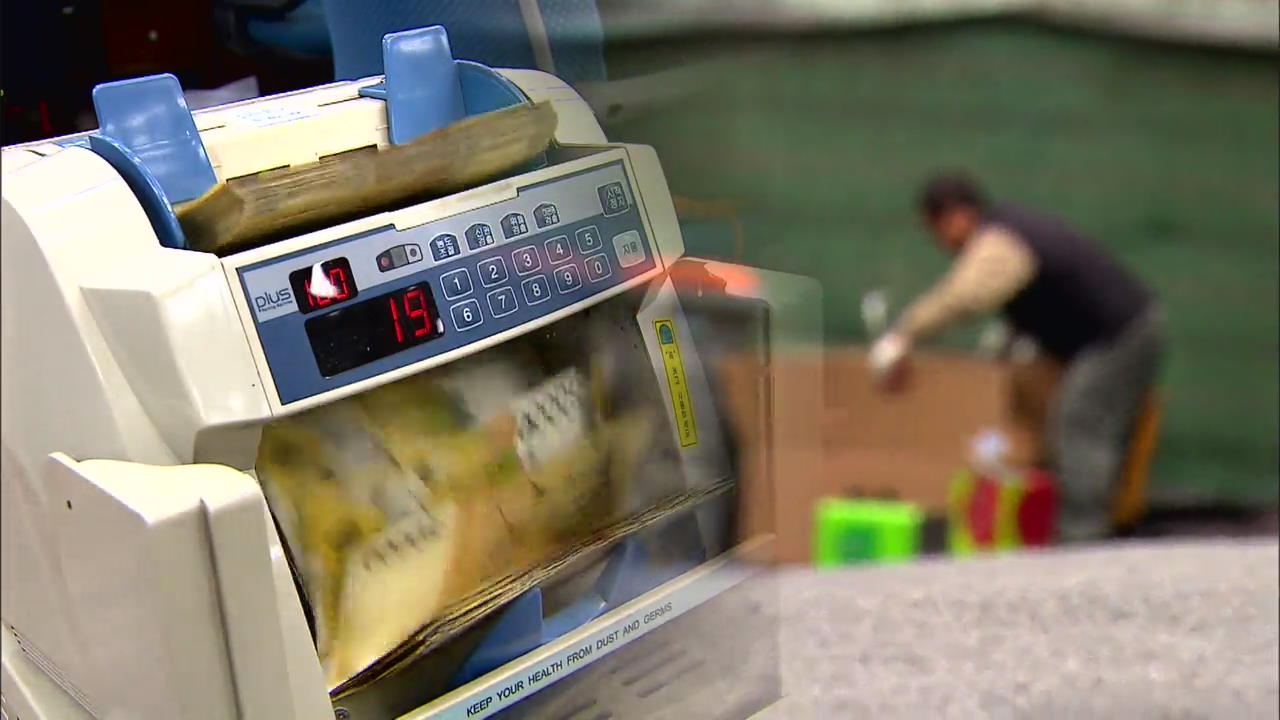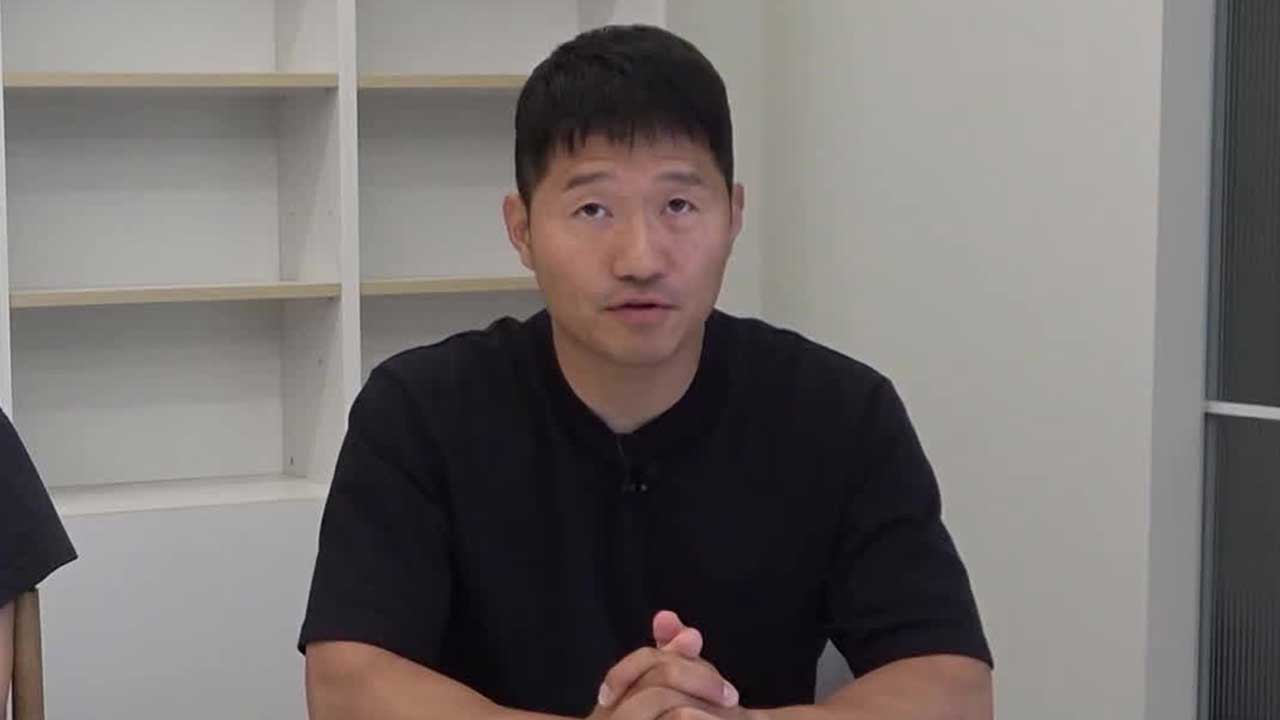Interest Rate Hike
입력 2017.09.22 (14:17)
수정 2017.09.22 (14:24)
읽어주기 기능은 크롬기반의
브라우저에서만 사용하실 수 있습니다.
[Anchor Lead]
The potential for a U.S. key interest rate hike is gaining momentum. It's not only the U.S., but other countries around the world as well that are shifting from monetary easing toward tightening. Against this backdrop, a rate hike may also be inevitable for Korea, which is raising concerns due to the nation's massive household debt.
[Pkg]
This office worker took out a mortgage loan when buying a home 6 years ago. Monthly payment in principal and interest is about 400-thousand won. The burden is not so much at present with the interest rate in the 2 percent range. However if the rate rises, it's a different story.
[Soundbite] Office Worker with Home Mortgage Loan(Voice modified) : "Office workers receive a fixed salary so if the interest rises, we have to cut spending in other areas."
Amid the protracted low interest rate trend, people taking out loans based on a floating interest rate have sharply increased to account for 60% of all borrowers this year. If the rate rises, their burden increases. The low income class and small-scale self-employed people are especially more vulnerable because receiving bank loans has become more difficult due to tightened regulations.
[Soundbite] Self-employed(Voice modified) : "Sales dwindle but rental costs continue to rise. So there's no other way but to take out loans for now."
In fact, the household loan balance at savings banks where loan interest is four times higher than regular banks, has recently surpassed a record 20 trillion won.
[Soundbite] Jo Yeong-moo(LG Economic Research Institute) : "It's becoming more necessary to prevent those with low repayment ability from quickly acquiring low quality loans based on adjustable rates."
There's also some 80 trillion won in outstanding loan taken about by people whose payment abilities are insufficient because of low income or low credit standing. Experts call for measures on better managing household loans as well as ways to increase income.
The potential for a U.S. key interest rate hike is gaining momentum. It's not only the U.S., but other countries around the world as well that are shifting from monetary easing toward tightening. Against this backdrop, a rate hike may also be inevitable for Korea, which is raising concerns due to the nation's massive household debt.
[Pkg]
This office worker took out a mortgage loan when buying a home 6 years ago. Monthly payment in principal and interest is about 400-thousand won. The burden is not so much at present with the interest rate in the 2 percent range. However if the rate rises, it's a different story.
[Soundbite] Office Worker with Home Mortgage Loan(Voice modified) : "Office workers receive a fixed salary so if the interest rises, we have to cut spending in other areas."
Amid the protracted low interest rate trend, people taking out loans based on a floating interest rate have sharply increased to account for 60% of all borrowers this year. If the rate rises, their burden increases. The low income class and small-scale self-employed people are especially more vulnerable because receiving bank loans has become more difficult due to tightened regulations.
[Soundbite] Self-employed(Voice modified) : "Sales dwindle but rental costs continue to rise. So there's no other way but to take out loans for now."
In fact, the household loan balance at savings banks where loan interest is four times higher than regular banks, has recently surpassed a record 20 trillion won.
[Soundbite] Jo Yeong-moo(LG Economic Research Institute) : "It's becoming more necessary to prevent those with low repayment ability from quickly acquiring low quality loans based on adjustable rates."
There's also some 80 trillion won in outstanding loan taken about by people whose payment abilities are insufficient because of low income or low credit standing. Experts call for measures on better managing household loans as well as ways to increase income.
■ 제보하기
▷ 카카오톡 : 'KBS제보' 검색, 채널 추가
▷ 전화 : 02-781-1234, 4444
▷ 이메일 : kbs1234@kbs.co.kr
▷ 유튜브, 네이버, 카카오에서도 KBS뉴스를 구독해주세요!
- Interest Rate Hike
-
- 입력 2017-09-22 14:08:40
- 수정2017-09-22 14:24:54

[Anchor Lead]
The potential for a U.S. key interest rate hike is gaining momentum. It's not only the U.S., but other countries around the world as well that are shifting from monetary easing toward tightening. Against this backdrop, a rate hike may also be inevitable for Korea, which is raising concerns due to the nation's massive household debt.
[Pkg]
This office worker took out a mortgage loan when buying a home 6 years ago. Monthly payment in principal and interest is about 400-thousand won. The burden is not so much at present with the interest rate in the 2 percent range. However if the rate rises, it's a different story.
[Soundbite] Office Worker with Home Mortgage Loan(Voice modified) : "Office workers receive a fixed salary so if the interest rises, we have to cut spending in other areas."
Amid the protracted low interest rate trend, people taking out loans based on a floating interest rate have sharply increased to account for 60% of all borrowers this year. If the rate rises, their burden increases. The low income class and small-scale self-employed people are especially more vulnerable because receiving bank loans has become more difficult due to tightened regulations.
[Soundbite] Self-employed(Voice modified) : "Sales dwindle but rental costs continue to rise. So there's no other way but to take out loans for now."
In fact, the household loan balance at savings banks where loan interest is four times higher than regular banks, has recently surpassed a record 20 trillion won.
[Soundbite] Jo Yeong-moo(LG Economic Research Institute) : "It's becoming more necessary to prevent those with low repayment ability from quickly acquiring low quality loans based on adjustable rates."
There's also some 80 trillion won in outstanding loan taken about by people whose payment abilities are insufficient because of low income or low credit standing. Experts call for measures on better managing household loans as well as ways to increase income.
The potential for a U.S. key interest rate hike is gaining momentum. It's not only the U.S., but other countries around the world as well that are shifting from monetary easing toward tightening. Against this backdrop, a rate hike may also be inevitable for Korea, which is raising concerns due to the nation's massive household debt.
[Pkg]
This office worker took out a mortgage loan when buying a home 6 years ago. Monthly payment in principal and interest is about 400-thousand won. The burden is not so much at present with the interest rate in the 2 percent range. However if the rate rises, it's a different story.
[Soundbite] Office Worker with Home Mortgage Loan(Voice modified) : "Office workers receive a fixed salary so if the interest rises, we have to cut spending in other areas."
Amid the protracted low interest rate trend, people taking out loans based on a floating interest rate have sharply increased to account for 60% of all borrowers this year. If the rate rises, their burden increases. The low income class and small-scale self-employed people are especially more vulnerable because receiving bank loans has become more difficult due to tightened regulations.
[Soundbite] Self-employed(Voice modified) : "Sales dwindle but rental costs continue to rise. So there's no other way but to take out loans for now."
In fact, the household loan balance at savings banks where loan interest is four times higher than regular banks, has recently surpassed a record 20 trillion won.
[Soundbite] Jo Yeong-moo(LG Economic Research Institute) : "It's becoming more necessary to prevent those with low repayment ability from quickly acquiring low quality loans based on adjustable rates."
There's also some 80 trillion won in outstanding loan taken about by people whose payment abilities are insufficient because of low income or low credit standing. Experts call for measures on better managing household loans as well as ways to increase income.
이 기사가 좋으셨다면
-
좋아요
0
-
응원해요
0
-
후속 원해요
0

















이 기사에 대한 의견을 남겨주세요.